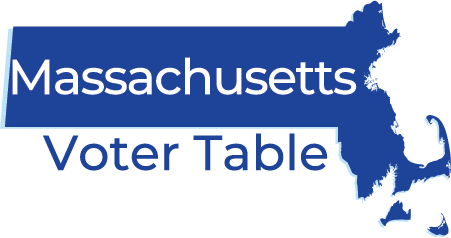A voting rights press conference on the Boston Common Monday afternoon — featuring Rep. Nika Elugardo rallying support for election-day registration to boost turnout among Black and Latinx communities across Massachusetts — was derailed by a protester jeering at the wrong person.
The man, wearing sunglasses and a mask, accused the ACLU of not caring about minority populations as he taunted the Election Modernization Coalition about Annie Dookhan, the former state chemist who falsified and fabricated evidence in about 24,000 cases. In 2016, the ACLU had asked the Massachusetts Supreme Judicial Court to dismiss more than 40,000 cases impacted by Dookhan.
“You’re a political puppet ... Why don’t you look into it, Mayor Wu?” the protester said, erroneously believing Boston Mayor Michelle Wu was standing on the steps of the Common, leading to the Massachusetts State House. “Look into that — you’ll find the truth, Mayor Wu.”
But to the surprise of the protester, Wu did not attend the press conference Monday. He had misdirected his anger toward Beth Huang, the executive director of the Massachusetts Voter Table.
Huang laughed off the case of mistaken identity, insisting she was not Wu to reporters and the small crowd gathered on the Common. Huang also struck a lighthearted tone on Twitter later Monday, writing: “If only being a 5′4″ Asian woman imbued in me the powers of being mayor of Boston.”
Still, the brief incident encapsulated the misogyny and racism that’s been repeatedly hurled at Wu — Boston’s first Asian-American mayor — since she announced vaccine mandates to keep residents and city workers safe from the ongoing COVID-19 pandemic. Protestors have descended on Wu’s Roslindale home during early morning hours, disrupting the neighborhood and the mayor’s young sons while spewing vitriol over the coronavirus requirements.
At the start of February, Boston elected leaders of color, including Rep. Ayanna Pressley, condemned the threats and hatred.
“Make no mistake, the relentless threats of violence and hateful attacks on Mayor Michelle Wu and her family have no place in our society and are a far cry from the political debate and peaceful dissent that is welcomed and necessary in a healthy democracy,” elected leaders said in a statement shared by Pressley’s office. “To remain silent is to be complicit, and as elected officials of color across the City of Boston, we will not stand by and watch as openly racist, anti-Asian and sexist rhetoric is normalized in our community.”
Elugardo attempted to steer Monday’s press conference — which included representatives from ACLU MA, Common Cause MA, Lawyers for Civil Rights, League of Women Voters MA, MA Voter Table, MassVOTE and MASSPIRG — back on topic by stressing she cares about minority communities.
The coalition has urged Beacon Hill lawmakers to incorporate election-day registration into the final version of the VOTES Act, a sweeping package that could permanently extend pandemic-era voting regulations, including vote-by-mail options and increased early voting opportunities.
Same-day voter registration — which applies to the early voting period, as well as election day — was included in the Senate’s VOTES Act, passed last year. When the House took up the legislation late last month, it omitted that provision.
But Elugardo stressed the House did not vote down election-day registration, which she characterized as a compromise that House and Senate leaders could agree on as they negotiate the final version of the VOTES Act. Municipalities with a higher proportion of Black, Latinx, indigenous and AAPI communities will see a boost in voter turnout if election-day registration passes, allowing residents to register on election day itself but not during the early voting period, Elugardo said.
“You’re going to see a high turnout in those populations, which not only matter, but are essential ... to the full functioning of our democracy and economy,” Elugardo said.
Huang said Gateway Cities — like Holyoke, Pittsfield, Springfield and Worcester — will benefit from election-day registration, plus communities along the Red Line in Boston.
“We know where this is going to make a difference is where there are a large number of provisional ballots cast,” Huang said. “Those are primarily in cities, not smaller towns.”
